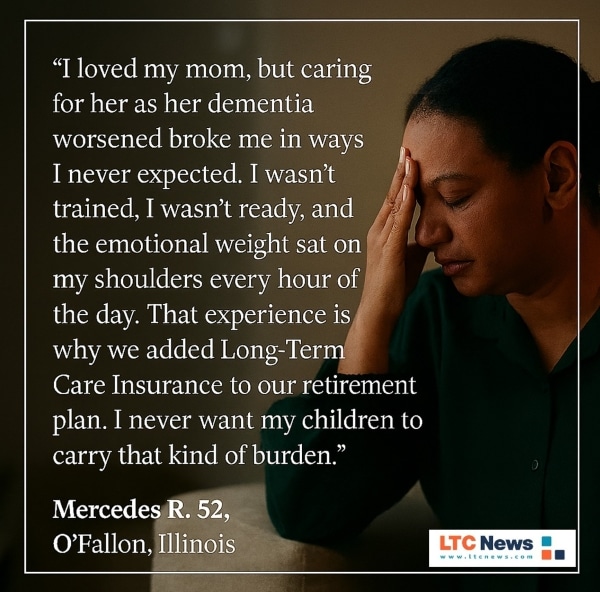Understanding Secondary and Medical Trauma: How Hidden Wounds Shape Mental Health

You know aging brings physical changes, but emotional wounds can build slowly over time, too. Some people experience trauma firsthand. Others absorb it through caregiving or medical events that have left lasting fear, tension, or loss of control. Both secondary and medical trauma can shape how you think, feel, and function long after the moment has passed.
If you provide care for a loved one, work in healthcare, or have gone through a serious medical event yourself, the stress can follow you into later life. Understanding these forms of trauma helps you protect your mental health and seek support before the burden becomes overwhelming.
What Secondary Trauma Means
Secondary trauma develops when you take on the emotional weight of another person’s suffering. It often affects:
- Family caregivers
- Professional caregivers and long-term care staff
- Nurses and physicians
- Social workers
- Mental health counselors
- Emergency responders
You might hear painful stories, witness distress, or feel responsible for someone who is struggling. Over time, you begin to experience symptoms similar to direct trauma:
- Persistent sadness or fear
- Irritability
- Anger or guilt
- Trouble sleeping
- Emotional exhaustion
For family caregivers, especially those supporting someone with dementia or mobility loss, secondary trauma can lead to burnout and long-term stress. This trauma is one reason so many caregivers eventually need support themselves. Caregiving is demanding even for trained professionals. When you’re an unprepared family caregiver, the emotional weight adds an entirely new level of stress and burden.

Share your thoughts and experiences about aging, caregiving, health, retirement, and long-term care with LTC News —Contact LTC News.
Medical Trauma and Why It’s Different
Medical trauma arises from distress linked to medical procedures, diagnoses, hospitalizations, or chronic health events. You do not need a life-threatening condition to experience it. Common triggers include:
- Emergency surgeries
- ICU stays or long hospitalizations
- Complex diagnoses
- Repeated painful procedures
- Loss of control during treatment
Adults may relive trauma through the sights, sounds, or smells associated with hospitals. Children can carry medical fear into adulthood, influencing anxiety and avoidance around healthcare.
For aging adults, the risk increases as medical encounters become more frequent. Even routine scans or lab work can trigger stress if earlier experiences were frightening.
How Trauma Rewires the Stress Response
Trauma, whether direct, secondary, or medical, affects how the brain evaluates safety. Your nervous system may remain on high alert even during normal daily routines.
This may lead to:
- Difficulty concentrating
- Hypervigilance
- Insomnia
- Memory problems
- Muscle tension or headaches
- Emotional swings
Your brain tries to protect you, but the constant stress becomes harmful over time. This stress and its impact is why trauma left untreated often leads to anxiety, depression, and chronic health problems.
Impact on Daily Life, Relationships, and Aging
Trauma affects far more than mental health. For many adults, it disrupts:
- Work performance
- Patience with family members
- Social connections
- Trust in others
- Motivation and decision-making
If you’re also caring for an aging parent or spouse, the emotional load compounds. Many caregivers report withdrawing from friends, losing interest in activities, or feeling overwhelmed by small responsibilities.
Left unaddressed, trauma can increase the likelihood of needing long-term care later in life.
How Residential Mental Health Care Helps
A counsellor in a residential mental health care setting offers structure, stability, and space for healing.
Skilled professionals provide a structured environment that promotes emotional safety and healing through daily therapy and consistent support. Through one-on-one sessions, the professional helps you or a loved one explore the roots of their trauma and learn healthy coping strategies to manage distress. Counsellors and clinicians work together to support emotional and physical needs.
Treatment often includes:
- One-on-one therapy for exploring trauma sources and reshaping stress responses
- Group therapy to reduce isolation and build shared understanding
- Skills-based treatment, such as grounding techniques, cognitive processing, and emotional regulation
- Medical oversight, especially when trauma affects sleep, appetite, or physical health
This level of care helps people regain a sense of safety, rebuild confidence, and learn long-term coping strategies. For caregivers, it can be a turning point, restoring resilience before burnout becomes unmanageable.
Why Recognizing Trauma Early Matters
Trauma rarely fades on its own. The earlier you acknowledge changes in mood, behavior, or stress patterns, the easier recovery becomes. You’re not weak for feeling overwhelmed. You’re responding to situations that would exhaust anyone.
With therapy, social support, and ongoing care, you can rebuild stability. Healing doesn’t happen overnight, but it is absolutely possible.
Long-Term Care Planning and Emotional Well-Being
Aging and caregiving often intersect with trauma. When a family member needs help with daily living, the emotional strain can grow quickly. Planning your own long-term care as part of an overall retirement plan will help ensure you have access to quality care without placing stress and burden on those you love.
Through resources like the LTC News Long-Term Care Insurance Education Center, LTC News Cost of Care Calculator, and the LTC News Caregiver Directory, you can reduce this stress.
Good mental health is part of aging well. Recognizing trauma and preparing for future care needs gives your family more time to be family, not just caregivers.


